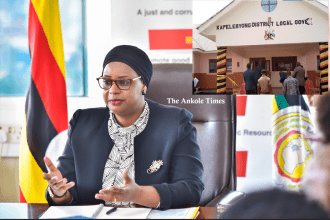Uganda’s population has officially grown to 45,905,417, according to the latest census results announced by Dr. Chris Mukisa, the Executive Director of the Uganda Bureau of Statistics (UBOS). The report, compiled over the last four months, reveals a demographic shift: women account for 53% of the total population, while men make up 47%. This could significantly influence future planning and resource allocation across the country.
Dr. Mukisa presented the findings at a high-profile event held at Kampala’s Serena Hotel, attended by key government officials, including Prime Minister Hon. Robina Nabanja, Hon. Oboth Oboth, Hon. Kabbyanga B, Hon. Amos Lugoloobi, and Dr. Zawedde, Permanent Secretary of the Ministry of ICT.
During his speech, Dr. Mukisa praised the introduction of the digital census system, which streamlined data collection and significantly shortened the timeline for generating results. He noted that this efficiency sets a new benchmark for African nations.
A key finding was the population distribution in major urban areas. Kampala, Uganda’s capital, has the highest daytime population, with 2,503,174 people present during the day, while approximately 1.7 million are permanent residents. Dr. Mukisa emphasized the importance of using this daytime figure for urban planning to better address the needs of those who work in and around the city.
Dr. Mukisa expressed deep gratitude to the Uganda People’s Defence Forces (UPDF), Uganda Police, and Uganda Prisons for their critical support during the census. Their provision of vehicles and trucks was instrumental in transporting census equipment across the country.
This milestone census has not only delivered faster results but has also positioned Uganda as a regional leader in the effective use of digital tools for data collection. Other African nations are expected to look to Uganda for guidance in improving their own statistical processes.




















